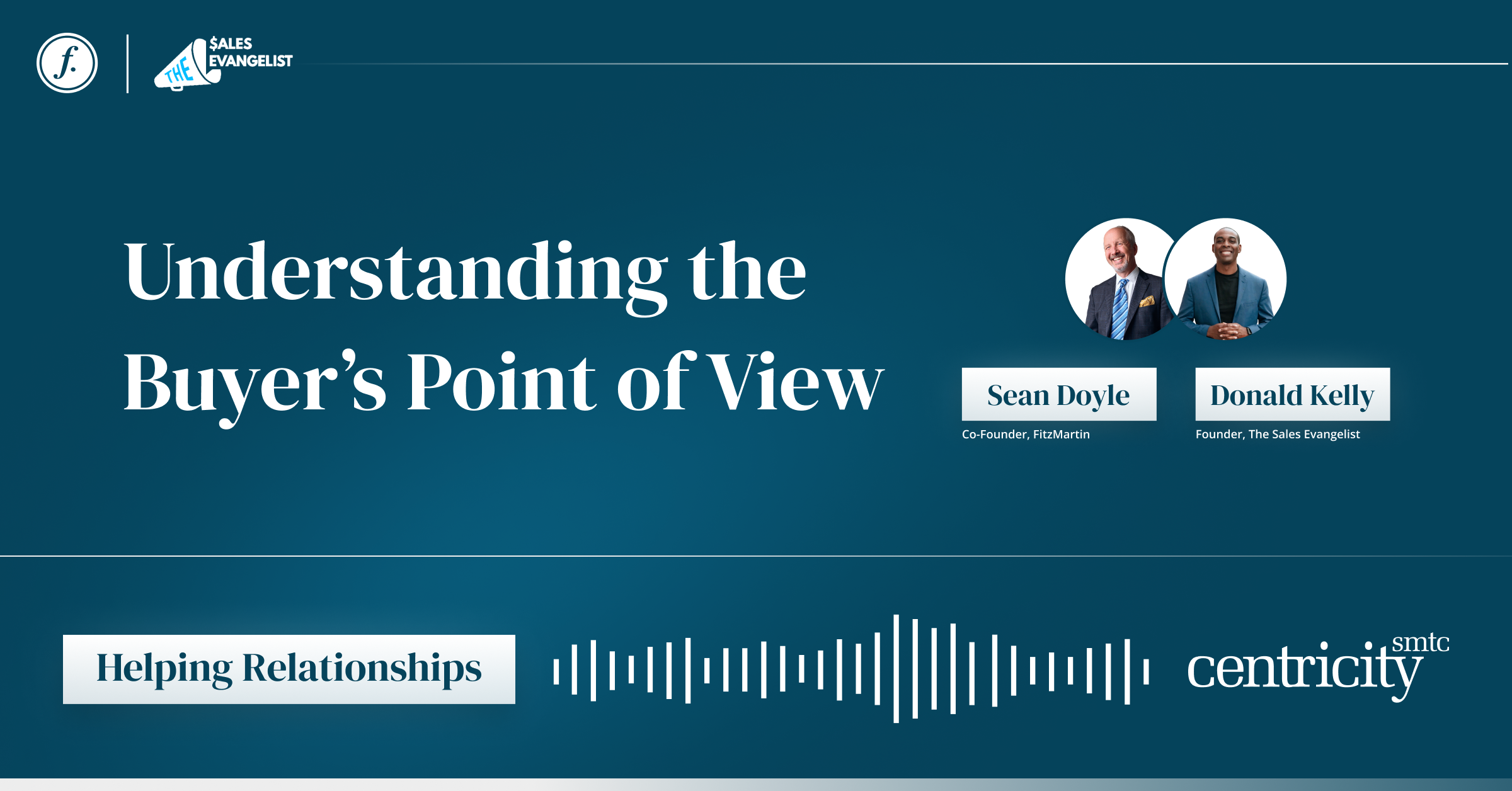
Closing the deal is the most important aspect of selling. Guiding a prospect through the sales journey really doesn’t matter if the deal never crosses the finish line. But so often, especially in later stages in the process, salespeople get distracted from what truly matters to the buyer, resulting in an inability to get the buyer to the closing table. The buyer’s needs include much more than just the details around the product or service they are considering purchasing; they need to be inspired to make changes while simultaneously feeling that you, as the salesperson, are their trustworthy guide through the process.
So what does this mean for you to close more late-stage deals?
It requires approaching the sale from a buyer-centered point of view, taking off the sales hat and instead becoming a consultant who recognizes the buyer’s problems and offers the needed solutions. Illustrating that you understand their point of view and taking on the role of helpful guide builds trust, fosters a better relationship and creates a frictionless buyer’s journey. Ultimately, doing so also leads to a much higher likelihood of closing the deal in the end.
Understanding the buyer’s dilemma
Why do buyers purchase a product? The answer is rather obvious: because they are attempting to solve an existing problem. But do you, as the seller, understand what your prospect’s individual problem is? If you’re not listening to the buyer’s needs, chances are someone else is. In fact, research shows that 80% of customers—your existing customers—are getting input from other people about what could solve their problem and if your product or service is the solution. Taking the time to thoughtfully listen to the buyer and understand their dilemma is key to fostering a positive relationship and building the trust needed to serve in the role of helpful guide.
Fostering and helping relationships
Who likes being sold to? Most likely, no one would raise their hand at that question, and for good reason. So often, the sales pitch is too transactional with the salesperson pushing for a close. When the salesperson is focused solely on the specifics around their product or service, they are missing an opportunity to foster a relationship with the buyer. Fostering a relationship leads to better understanding the buyer’s unique problem and then how the product or service could help bring resolution to that problem. The sales process doesn’t have to be this transactional. In fact, it shouldn’t be. The first consideration any salesperson should have in working to finalize a sale is their relationship with the buyer. Think of the late-stage sales process as guiding the buyer toward something positive. This type of selling, with the salesperson approaching the buyer as a helpful consultant, is known as consultative selling. When employing consultative selling, the salesperson isn’t pushing their product or service onto the buyer; instead, they are offering real solutions (i.e., their product or service) to rid the buyer of their problems. How is the salesperson able to do that? By building a relationship with the buyer and proving themselves to be a trusted ally through the journey—one who is there to help the buyer fulfill a need, not manipulate them into a purchase.
Being a guide
Establishing a helping relationship with the buyer through consultative selling also places the salesperson in the role of a guide. This role is critical to sales because most buyers need a guide during the process. Think about it: If the prospect could solve their problem on their own, they wouldn’t be talking to you, the salesperson, in the first place. They clearly need someone to step in and help them solve their existing problem—but that guide must be trustworthy. None of your advice, much less your product or services, matters to the buyer if they don’t feel they can trust you. Fostering a helpful relationship with the buyer, like we discussed above, helps build this needed trust.
Offering free information during the sales journey is another great way to build trust with the buyer. It may seem counterintuitive, but offering free information to the buyer shows you’re not just there to sell a product or service; free information illustrates you’re genuinely seeking to help the buyer solve their issue.
In summary, selling with integrity and building trust are hugely important for creating solid relationships with buyers and positioning yourself as their helpful guide. Sellers who are overly aggressive and too focused on the end goal will lose out on potential sales. But when sellers approach the process from the buyer’s point of view, taking the time to understand their needs before attempting to deliver a solution, they can create the frictionless buyer’s journey needed to gain the buyer’s trust and convert more prospects into clients.
Our podcast is dedicated to helping small and mid-market businesses thrive and develop the sales and marketing acumen to move the needle. Tune into our episode featuring sales expert and founder of The Sales Evangelist, Donald Kelly, to learn more about consultative selling and guided help to finalize more sales for your company.